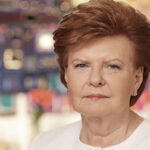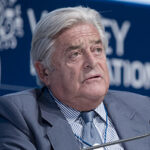This meeting is particularly relevant for the democratic challenges that both countries are facing in the beginning of 2014. Tunisia’s national assembly has just approved the final articles of the country’s new constitution, three years after an uprising against autocrat Zine El Abidine Ben Ali inspired a wave of Arab revolts, and new democratic elections are foreseen in the next weeks. Moldova young democracy is facing an internal struggle between groups favoring a closer relationship with the European Union and others who look into neighboring Russia as a role model and privileged ally.
The purpose of the gathering, organized by the Club de Madrid with the support of the State Department of the United States of America, the Republic of Estonia and Community of Democracies, is to allow the tunisian and moldovan participants of the online, virtual LEND platform to have Face-to-Face exchanges with Club de Madrid Members and the Advisors. During the meetings specific themes that are key for the consolidation of their respective democratic systems will be discussed, ensuring that the political and governmental experience and political expertise that Club de Madrid Members bear as well as the theoretical and hands on experience of LEND Advisors will be shared with selected democratic leaders and practitioners from countries included in the Network.
The main topics will be:
- How to ensure transparency and participatory processes in decision making
- Political parties in countries in transition
- Fair and democratic elections in countries in transition
- Democracy and economic development
- The role of Judiciary reform in consolidation of democratic systems
- Government change and coalition building in crisis situations
The two days encounter will count with the participation of Vaira Vike-Freiberga and Luis Alberto Lacalle as CdM Members ten experts from each recipient country – Moldova and Tunisia -, and Maria Leissner, Secretary General of Community of Democracies.
International LEND Advisors / Experts
- Liia Hanni: Director of the e-Democracy Program, e-Governance Academy, Estonia: as an she is an e-democracy expert she promotes the use of ICT for democratic governance and empowerment of citizens
- Matyas Eorsi: former State Secretary at the Ministry of Foreign Affairs of Hungary. He has served in different leadership positions in the Parliament for 20 years and has assisted parliaments in the Arab Spring countries
- Rasto Kužel: Media analyst and expert with over 15 years of international experience, participating in some 26 OSCE/ODIHR election observation missions, most recently in Serbia and Iceland. He has also worked in more than 50 election and media-related projects and missions in the framework of the UN, Council of Europe, OSCE, IFES, NED, NDI and IMS, most recently in Georgia and Azerbaijan.
- Maria Leissner: Secretary General of the Community of Democracies. She has been Member of Parliament in Sweden from 1985-1991. She joined the Ministry of Foreign Affairs in 2000 and was Ambassador to Guatemala, Honduras, El Salvador, Belize and Costa Rica in 2000-04. Maria Leissner has also served internationally as Director for NDI’s Governance program in Iraq 2004-2005. She has participated in a large number of election monitoring. She chaired the Swedish Committee for Afghanistan in 1991-94.
You can check here the list of participants and their biographies
Background information
The LEND initiative leverages expertise from the Club de Madrid and 21st century technologies developed by Google, Spontania and OpenText to connect leaders who have successfully navigated the challenges of democratization with leaders in emerging democracies. It will augment face-to-face meetings with ongoing peer-to-peer exchanges via a sophisticated, secure virtual platform.


